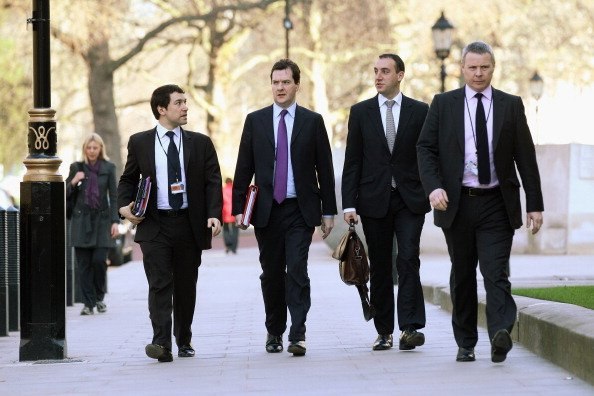Only about a third of Britons know the public debt is bigger than the UK budget deficit, while most tend to believe the worst when the terms are defined
Summer 2013 has been marked by a glut of positive economic news, from figures showing a sharp rise in manufacturing output in June to the just-announced upward revision of this year’s second quarter economic growth to 0.7%, all suggesting a full recovery may be around the corner. However news on government borrowing has been more mixed – for the first July since 2010, the government ran a budget deficit. And while year-on-year deficits have been decreasing, the change has been slight: the UK budget deficit was £120.6bn for the 2012-2013 financial year, down only 0.3bn from the previous year.
Now, YouGov research reveals that few Britons can tell that the UK budget deficit has been shrinking – and many are confused about how the deficit is distinct from the much larger public debt.
Only about one in five Britons (21%) believe that the deficit – defined here as “the gap between the amount of money the UK government took in and the amount of money it spent” – was smaller in 2012 than it was in 2011, as it in fact was, albeit by a small amount. Another 19% believe that the 2011 and 2012 deficits were about the same, which could also be considered true. But one third of voters (33%) erroneously think the opposite is the case – that the gap between tax receipts and government spending was larger in 2012 than in 2011 and 27% admit that they simply don't know.
Notably, political differences do play into public understanding of the budget deficit, but not necessarily in predictable ways. Conservative voters tend to get it right most often out of the main parties, although even they were more likely to say that the deficit had gotten larger in 2012 (as 32% did) than to say that it had gotten smaller (as 27% did). Deficit reduction has been staked out as a key goal by Chancellor George Osborne and the Conservative-led coalition.
When it comes to terminology, however, there is widespread confusion among Britons about the relationship between the goverment's net borrowing – the budget deficit – and the the total amount owed by the government – the public debt, which is now 1.2tn and rising, excluding bank bailouts. Only about a third (35%) correctly identify the public debt as larger than the UK budget deficit.
Again, Conservatives are the most likely to get it right: 45% of Tory voters note that the public debt is larger than the UK budget deficit, as do 38% of UKIP voters, 37% of Lib Dems and 32% of Labour.
However many Britons do understand a key fact about the economy: namely, some deficits persist and the pubic debt is still growing. 49% correctly believe that currently the "government takes in less money than it spends", while a fifth (19%) think the opposite is true, and another 10% think the UK budget is balanced.
Once again, Conservative voters – whose party has advocated significant cuts to public sector spending in order to eliminate deficits – get it right most often, with 62% aware that the government, despite the cuts, continues to take in less money than it spends. Interestingly, Labour voters are the voters most likely to believe that the government is making a surplus (27% believe this), although the largest proportion of these voters (42%) acknowledge that the government is currently in the red.
Image: Getty









